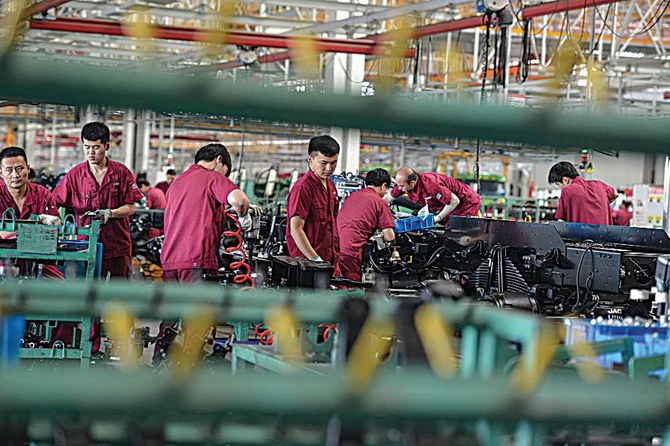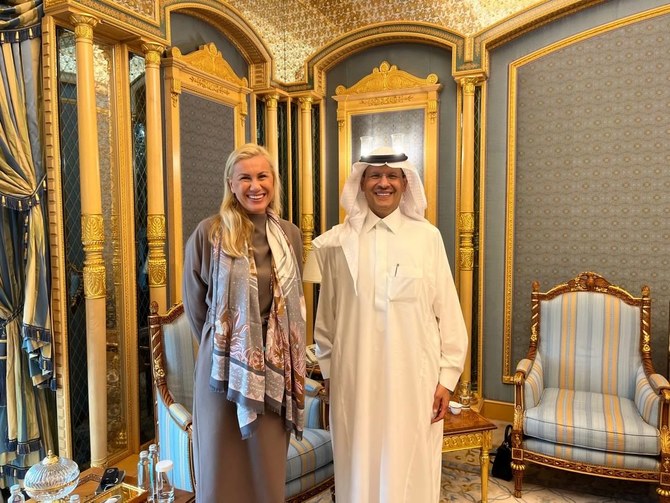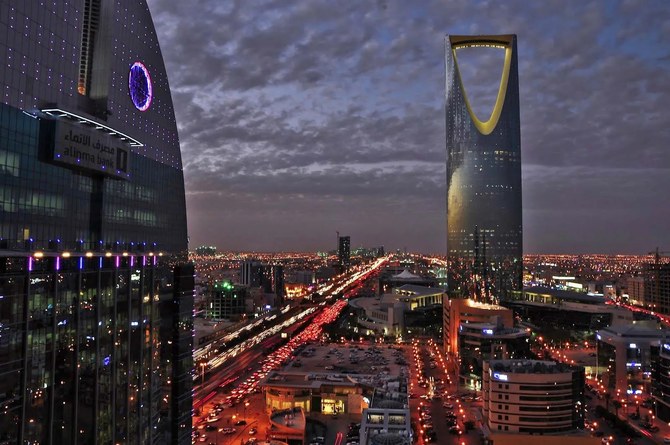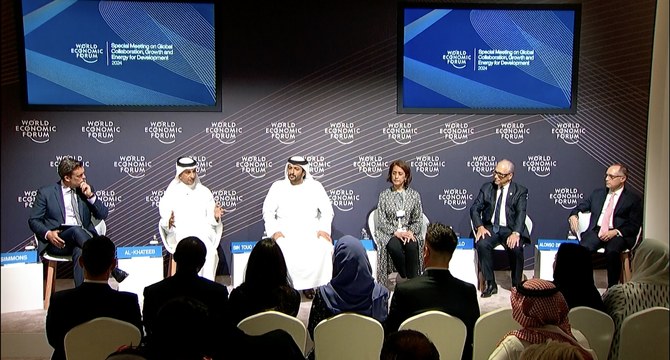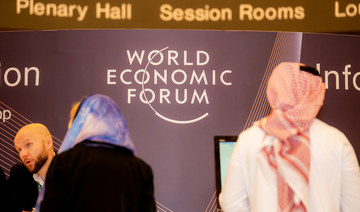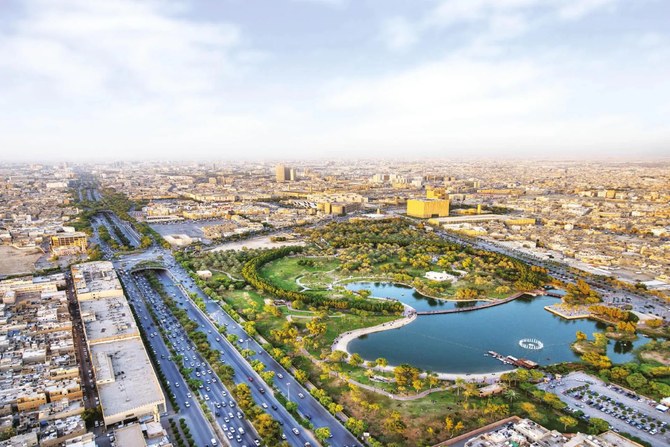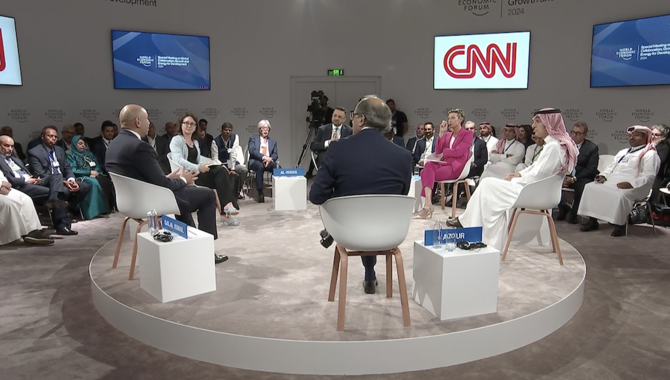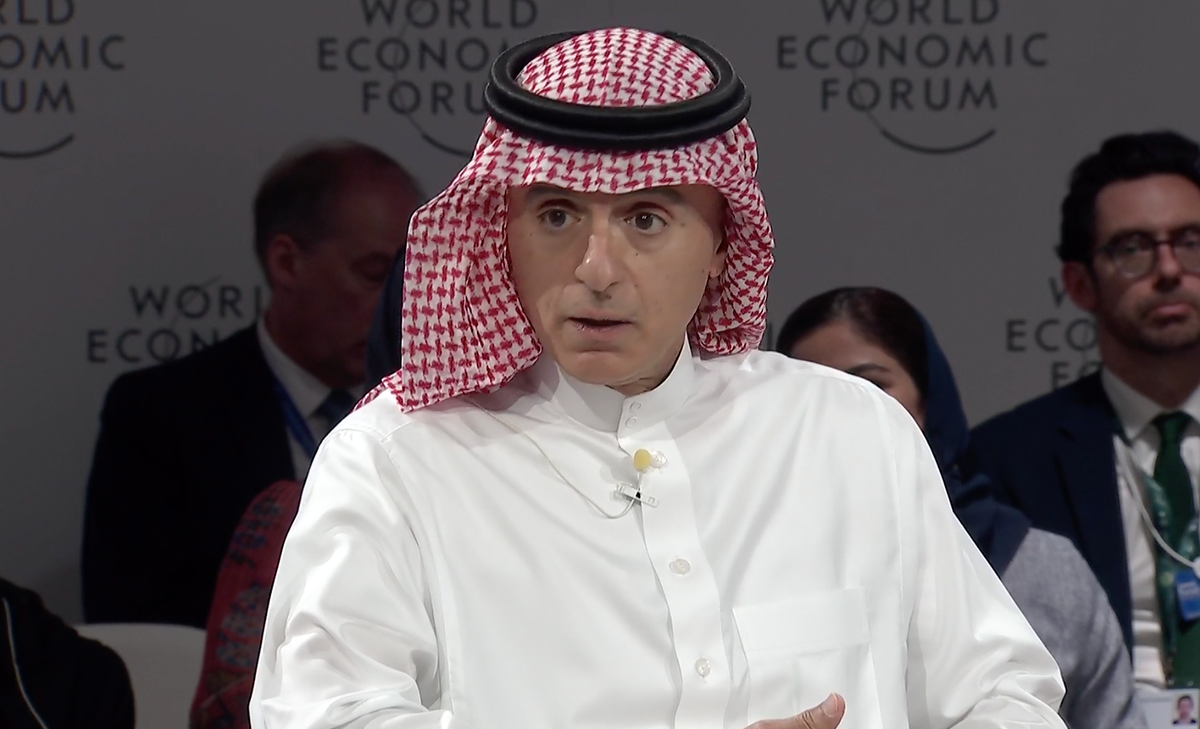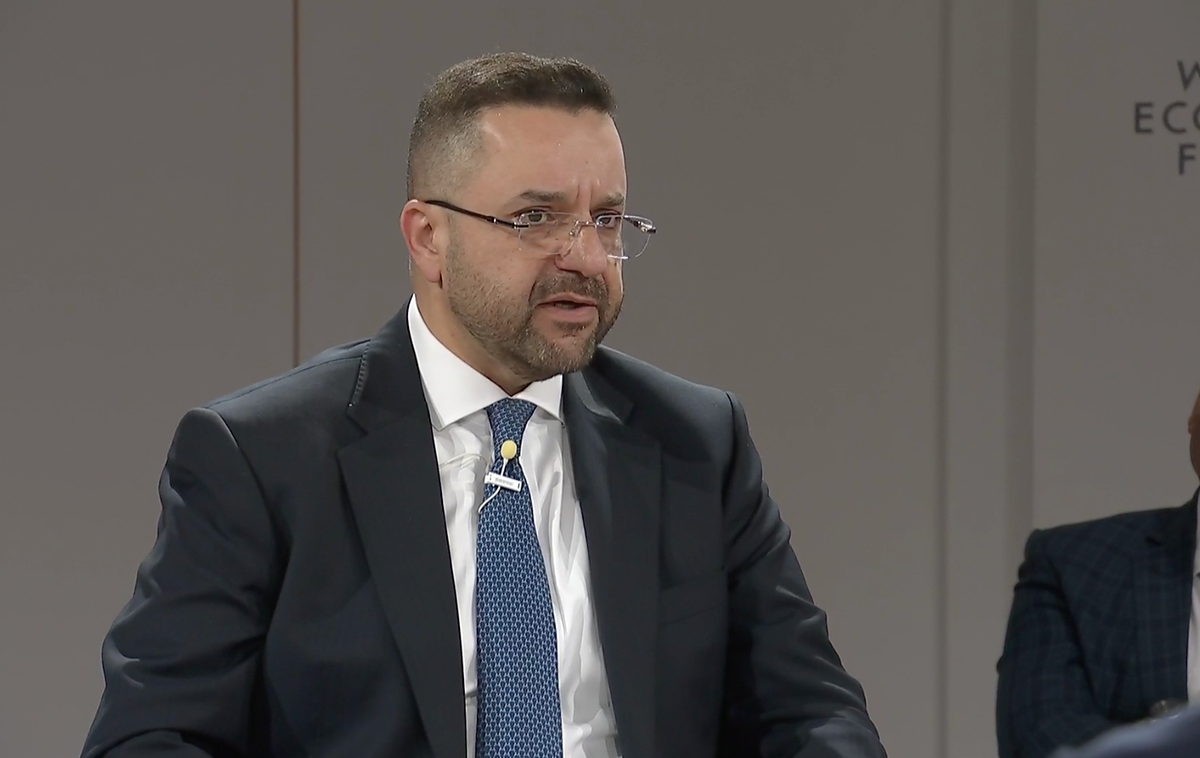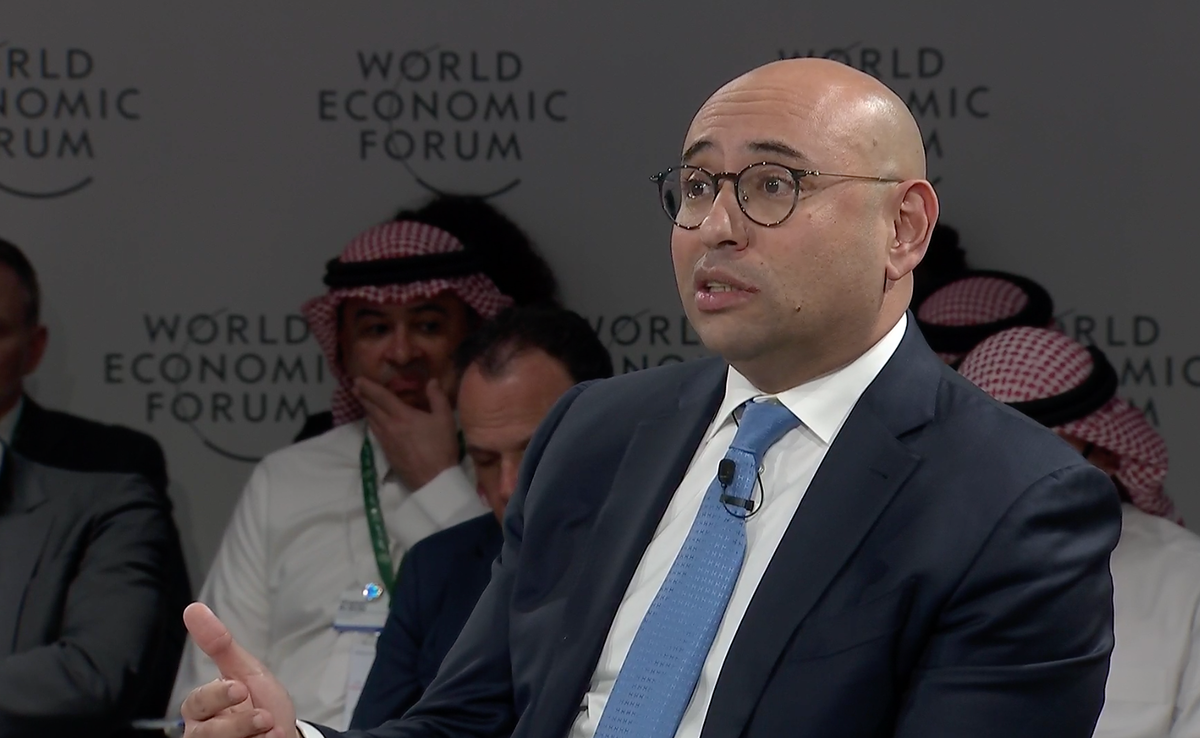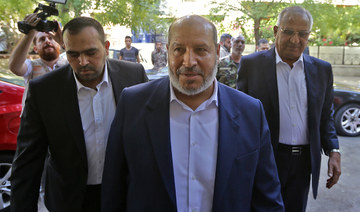BEIJING: China’s economy returned to growth in the second quarter following a coronavirus contraction, with President Xi Jinping promising continued expansion ahead and urging foreign companies to be a part of it.
The forecast-beating figures released on Thursday follow a string of data showing the world’s number two economy slowly emerging from the pandemic, and should provide hope to other governments looking to recover from a crisis that has likely caused a global recession.
Gross domestic product expanded 3.2 percent in April-June, the National Bureau of Statistics (NBS) said, smashing expectations and a massive improvement on the 6.8 percent contraction in the first quarter.
In a letter to members of the Global CEO Council, Xi said “the fundamentals of China’s long-term economic growth have not changed and will not change,” according to state media.
He reiterated pledges to continue opening up an economy that many foreign businesses say offers unfair advantages to Chinese companies, and added that it was “the right choice to stay rooted in China.”
However, in a sign that full recovery could take time, retail sales — a key indication of consumer sentiment — fell short of forecasts, shrinking 1.8 percent on-year in June, suggesting continued reticence about going out to spend even as the virus appears largely under control in China.
The data also failed to lift Asian markets, led by Shanghai, which tanked 4.5 percent having rallied around 15 percent this month.
“No matter how much stimulus and fiscal sugar you try to entice consumers with, they will not leave their apartment and go on a spending spree until they feel confident the landscape is virus-free,” said AxiCorp strategist Stephen Innes.
The retail sector occupies an increasingly crucial role in China’s economy as leaders look to consumers, rather than trade and investment, to drive growth.
A domestic consumption pick-up is especially needed as external demand weakens, but Innes noted it is easier to normalize supply than demand.
Louis Kuijs, of Oxford Economics, said household consumption remains the “weakest link” among indicators, although China’s economic upturn is expected to continue in the second half of 2020.
Economists warn, however, that official Chinese figures should be taken with a grain of salt, with longstanding suspicions they are massaged upward for political reasons by a ruling Communist Party that bases its legitimacy on delivering continued prosperity.
“Is it too good to be true?” ING chief economist for Greater China Iris Pang asked, saying that more data was needed. She pointed to risks down the road including trade and tech tensions with other economies, particularly the US.
Economists also warn of uncertainty owing to an uneven recovery — growth in infrastructure investment has rebounded, but private fixed-asset investment and retail sales remained weak.
As if mindful of the concerns, Xi pledged that “China will foster new opportunities and create new prospects for Chinese and foreign enterprises,” and will implement growth-oriented policies, his letter said, according to Xinhua.
The coronavirus, which first emerged in the city of Wuhan late last year, has since shut businesses and destroyed millions of jobs globally, likely tipping the world economy into recession.
Growth beat the 1.3 percent gain tipped in an AFP poll of analysts but remains among China’s lowest quarterly expansion rates on record. The economy contracted 1.6 percent on-year in the first six months, the NBS said, and urban unemployment dipped to 5.7 percent in June from 5.9 percent a month earlier.
Unemployment is a closely watched marker, with nearly nine million graduates expected to enter an uncertain labor market this year and analysts saying actual joblessness is likely higher.
NBS spokeswoman Liu Aihua said China’s economy was staging a “gradual recovery.” But it is “still under pressure” as the pandemic ravages many of China’s key trading partners.
China is expected to be the only major economy to see growth in 2020, being the first hit by the virus and to bounce back.



